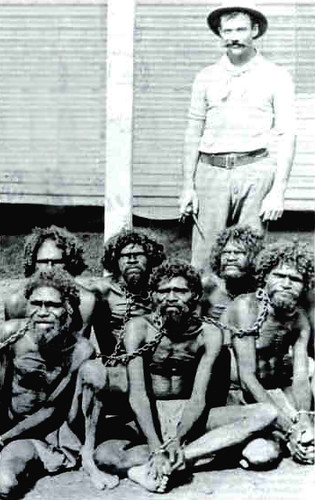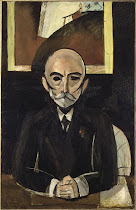49 Up is an incredible concept. It's the seventh documentary in a series that visits the lives of 14 British folk since they were children. The film crew has interviewed them every seven years since they were seven.
This is the only one I have seen in this beautiful format and I was surprised to see how many subjects (some of whom have dropped out of the project) reflect on how much they dislike taking part. Every seven years it's a reminder of how their lives haven't turned out the way they envisioned. A confrontation most of us can avoid since, as a whole, humans love justifying their present lives and block out our past in the healthy way a censor would take all of the deaths out of children's book.
I would think the subjects would be aware that they were simply the documented examples of a process that happens to us all. Unfortunately, the director/interviewer has shit for brains.
If you listen to the few times that he leaves his question in the edit you can pick up how many closed questions he asks. I think he should take his camera around during the day to record how many shitty conversations he must have.
The difference between a closed and open question. A closed question has an answer built in, causing the person asked to squirm in the confines of making someone else's choice.
Aren't you happy to be reading this?
That shitty question implies "happy" as the dominant emotion you should be feeling and you should respond in a simplified "yes" or "no" format, knowing I want you to say yes.
What do you think of what I have written?
This open question allows you to say what you think and feel instead of fit what you think and feel into my shitty closed question box.
Closed questions have their place but to use them in a documentary series about people's personal lives crushes their own spirits and casts the whole project in the mind of the documenter. "Don't you want to be married?" is very different than "I'd like to know if you have any strong feelings about marriage. What does it make you think or feel?"
Sigh. Once again I have proved that every film would have been better if those assholes would get out of the way and let me do it all.
Monday, June 20, 2011
Sunday, April 3, 2011
Thoughts on Photography
What intrigues me about a photo is the relationship between the subject and the person behind the lens.
This explains why I find advertisements and models so boring. It's a narrow range of relationships playing out over and over. The subject does their best to look pretty, serious, excited, etc. The photographer attempts to capture a predetermined emotion in order to move product. Certainly, this is an interesting relationship but, due to its abundance, I find it the least compelling.
The purpose of photography is to make a permanent record of a fleeting moment. We desire careful control over these eternal moments, often grinding out anything interesting in place of capturing a banal agreement between photographer and subject that things 'look nice'. I would much prefer photographs of arguments from a child's point of view to a family photo.
I like candid shots in which a photographer captures a subject's spontaneous relationship to something else. Although now we are too wise to the beauty of these images and must plan them as well.
If a photo is a snapshot of the relationship between photographer and subject then what is a "selfie"? Surely, not ourselves through our own eyes but through the eyes of some imaginary photographer encouraging us to add another safely constructed image to the archive.
This explains why I find advertisements and models so boring. It's a narrow range of relationships playing out over and over. The subject does their best to look pretty, serious, excited, etc. The photographer attempts to capture a predetermined emotion in order to move product. Certainly, this is an interesting relationship but, due to its abundance, I find it the least compelling.
The purpose of photography is to make a permanent record of a fleeting moment. We desire careful control over these eternal moments, often grinding out anything interesting in place of capturing a banal agreement between photographer and subject that things 'look nice'. I would much prefer photographs of arguments from a child's point of view to a family photo.
I like candid shots in which a photographer captures a subject's spontaneous relationship to something else. Although now we are too wise to the beauty of these images and must plan them as well.
If a photo is a snapshot of the relationship between photographer and subject then what is a "selfie"? Surely, not ourselves through our own eyes but through the eyes of some imaginary photographer encouraging us to add another safely constructed image to the archive.
Monday, February 21, 2011
The Torture of Minnows
Today, as I sat in an ice fishing hut, I watched a young, skilled fisherman use a sharp knife to slice up a pike and a walleye. He sat with a board on his lap as he went about his work in a casual and inviting manner. The two adults nodding with appreciation. The two children were riveted. The four-year old leaned in, inches from the face of the pike, straining to see it's teeth as the father held the mouth open.
When a fish is cleaned the head remains eerily untouched while the rest of its dismembered body stretches out in a sloppy pile. The skilled fisherman cut open the stomach to reveal the sucker minnow used as bait. The other child eagerly scooped it up in his hand.
Not once did the children shirk at the blood or ask a question about the death of the fish. They were content, as were the adults, smiling and eager as they palmed two more minnows from the bucket, pushing the hooks through their bodies and setting the fishing rod back in place.
When a fish is cleaned the head remains eerily untouched while the rest of its dismembered body stretches out in a sloppy pile. The skilled fisherman cut open the stomach to reveal the sucker minnow used as bait. The other child eagerly scooped it up in his hand.
Not once did the children shirk at the blood or ask a question about the death of the fish. They were content, as were the adults, smiling and eager as they palmed two more minnows from the bucket, pushing the hooks through their bodies and setting the fishing rod back in place.
Sunday, February 20, 2011
Hunger Games
I finished reading Hunger Games a while ago and I wanted to reflect on the author's (Suzanne Collins) use of violence. As I was reading the book I remember thinking that Collins' fight scenes seemed amateur. There was something about them that wasn't quite right. Later, I reflected on why her style seemed so unfamiliar to me.
In books like The Lord of the Flies, violence is portrayed as a force that is barely under the surface of civilization, waiting for its chance to boil up and over. The boys are sadistic and wild when left to their own devices. Similarly, the television series Spartacus depicts slaves forced to take part in the gladiatorial games. The characters show no reluctance once on the sand, easily tapping into their "inner monster" for scene after scene of computer animated throat slashing and decapitation.
What I came to realize about Hunger Games was that the author did not present violence as the beast that sleeps within us all. In Collins' story characters fight because of their relationships. All of these stories share the similarity of forcing their characters into a situation where there will be violent conflict. Collins' story proposes that people are most likely to be violent to protect the ones that they love. In contrast, the fiction written by male authors emphasizes the inevitability of the violent beast within us all. Is gender a useful category for analysis here? Are males trained to see violence as inevitable and females trained to see it as a last resort to protect our loved ones?
In books like The Lord of the Flies, violence is portrayed as a force that is barely under the surface of civilization, waiting for its chance to boil up and over. The boys are sadistic and wild when left to their own devices. Similarly, the television series Spartacus depicts slaves forced to take part in the gladiatorial games. The characters show no reluctance once on the sand, easily tapping into their "inner monster" for scene after scene of computer animated throat slashing and decapitation.
What I came to realize about Hunger Games was that the author did not present violence as the beast that sleeps within us all. In Collins' story characters fight because of their relationships. All of these stories share the similarity of forcing their characters into a situation where there will be violent conflict. Collins' story proposes that people are most likely to be violent to protect the ones that they love. In contrast, the fiction written by male authors emphasizes the inevitability of the violent beast within us all. Is gender a useful category for analysis here? Are males trained to see violence as inevitable and females trained to see it as a last resort to protect our loved ones?
Subscribe to:
Comments (Atom)





